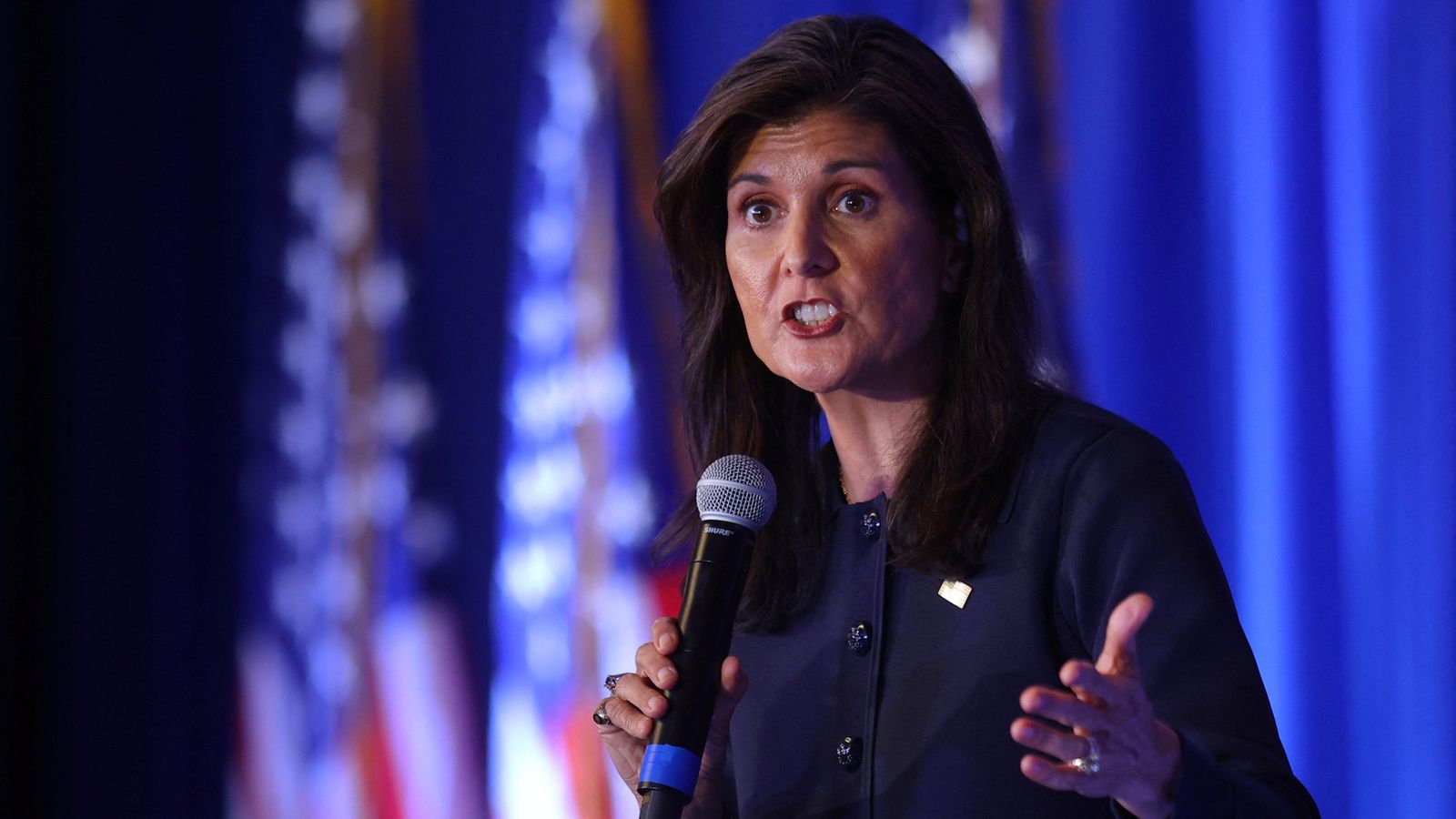Nikki Haley has never lost an election.
When she was elected governor of South Carolina in 2010, she was the state’s first woman in the role and the youngest governor in the US.
She was also only the second person of Indian descent to serve as a state governor.
She became the first Republican to challenge Donald Trump for the nomination when she announced her run in February.
The pair are far from strangers. From being a sharp critic during Mr Trump’s 2016 campaign, she went on to serve in his presidential cabinet as the US ambassador to the United Nations.
The 51-year-old has gained a reputation in the Republican Party as a solid conservative, able to address issues of gender and race in a more credible fashion than her opponents.
Ms Haley has also pitched herself as strong on foreign policy, proclaiming in a promotional video that China and Russia were “on the march”, adding: “You should know this about me: I don’t put up with bullies.
Despite debate no-show, Donald Trump would have to be ‘hit by a meteor’ to miss out on nomination
US Congress’s only Palestinian-American Rashida Tlaib censured over Israel comments
Brian Jeffrey Raymond: Former CIA officer admits federal sex abuse charges
“And when you kick back, it hurts them more if you’re wearing heels.”
The Israel-Hamas war has brightened the spotlight on foreign policy in a way that could benefit Ms Haley, some commentators have argued, as voters key in on her international experience and time at the UN.
Ms Haley is a strong supporter of Israel but believes America should have only a limited role in the conflict.
Early life, discrimination and claims of ‘whitewashing’
Ms Haley was born Nimarata Nikki Randhawa in 1972 in South Carolina, to Indian Sikh parents.
She has received criticism for not going by her first name – some accused her of denying her heritage and “whitewashing” herself.
She addressed this in a post on X, formerly Twitter, in 2021: “Nikki is a Punjabi word that means little one. It’s my middle name on my birth certificate.”
She has not used her maiden name since she was 24, when she married Michael Haley. They had both Sikh and Methodist ceremonies and a year later she converted to Christianity. The couple have two children.
Ms Haley began working at her mother’s clothing boutique as a teenager, doing the accounts from the age of 13.
She went on to study accounting at Clemson University in South Carolina.
Ms Haley has talked about the discrimination she faced growing up in the only Indian family in the small South Carolina town of Bamberg.
She was disqualified from a beauty pageant because she was neither black nor white, and told by classmates she couldn’t play ball unless she picked a team – which she said was picking a race.
“Issues like that kept coming up throughout my childhood and into adulthood. A white legislature would call me a “raghead,” and a black legislature would call me a “conservative with a tan’,” she told the New York Times in 2012.
But she has said, despite these incidents, she does not believe the US to be institutionally racist.
“That is a lie. America is not a racist country,” she told the Republican National Convention in 2020.
Unlikely inspiration for a Republican career
Hillary Clinton was the reason Ms Haley first ran for office, she told the New York Times.
“Everybody was telling me why I shouldn’t run: I was too young, I had small children, I should start at the school board level.”
At a talk where Ms Clinton was the keynote speaker, she told the audience the reasons women are told not to run are the exact ones why they should.
“I walked out of there thinking ‘That’s it. I’m running for office’.”
She won a seat in the South Carolina state legislature in 2004, serving three terms before her election as governor.
Read more:
Who is Vivek Ramaswamy, the ‘anti-woke’ Republican?
Five things to know about Ron DeSantis
Who is Tim Scott? Republicans’ only black senator
Confederate flag victory as South Carolina governor
Ms Haley was elected governor of South Carolina in 2010.
In the wake of a white supremacist murdering nine black churchgoers in Charleston in 2015, she passed a law removing the Confederate flag from the South Carolina state capitol.
The move attracted widespread praise – including from Barack Obama – and helped put her on Time magazine’s list of the 100 most influential people in the world.
However she was later criticised for calling the flag a symbol of “heritage” for some Southerners.
She appointed Tim Scott, now a rival for the Republican nomination, to the US Senate in 2012.
Turbulent relationship with Trump
Ms Haley started as a critic of Mr Trump during his 2016 campaign, saying he was “everything a governor doesn’t want in a president”.
She initially backed other candidates before saying she would vote for him against Hillary Clinton.
Ms Haley served as Mr Trump’s ambassador to the United Nations from January 2017 to December 2018, the first Indian-American to serve in a presidential cabinet.
Since leaving the Mr Trump administration in 2018, Haley has had an up-and-down relationship with the former president.
In 2020, she encouraged voters to support his bid for a second term.
She criticised Mr Trump after the January 6 riot, but later said Mr Trump has an important role to play in the Republican Party.
She also criticised him after charges were laid over classified documents he allegedly moved from the White House to his Mar-a-Lago estate.
Ms Haley said if the information in the charges was true, it was “incredibly dangerous to our national security”.











